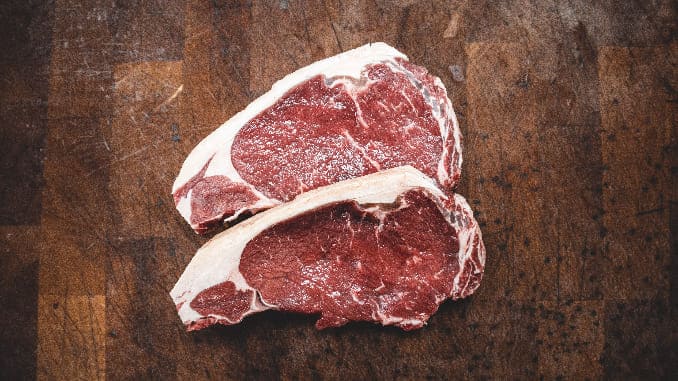Introducing Endless Mode: A New Games & Anime Site from Paste
When we talk about ways to make food choices that are healthier for the environment, we’re often met with the suggestion that we should cut meat and animal products out of our diets as much as possible; multiple sources have shown that transitioning to a plant-based diet can lower our carbon footprints significantly. Of course, we can push to reduce our animal product intake as much as possible, but for many individuals and families, cutting out meat and animal products entirely is simply unrealistic.
For those who still want to eat meat while making more sustainable food choices, buying meat from a CSA, or a community-supported agricultural organization, is a great way to do so. Admittedly, CSAs aren’t perfect for every meat eater out there—they often sell their products at higher prices than you would find in the grocery store. But if you’re willing to shell out the cash, you may just find that you’ll get better-tasting meat that creates less of a negative impact on the environment in the process.
1. You’ll Likely Get Better-Quality Meat
It’s no secret that factory-raised meat is objectively horrible for the animals involved. These massive operations don’t have the time, space or resources to provide their animals a quality life before they’re slaughtered, so many of the animals are not at peak health. Plus, these farming operations aren’t everywhere, so there’s a considerable amount of time between when the animal is slaughtered and when you get it on your plate. By opting for shares from a local meat CSA, like Walden Local Meat here in Massachusetts, your food isn’t traveling as far, and you can feel confident that you’re getting healthier (and therefore higher-quality) meat.
2. You’re Usually Making a Better Choice for the Animals and the Environment
Factory farming is bad for the environment, point blank. While meat production in general is not the most environmentally friendly way to meet our caloric needs, buying local from a CSA can have less of a negative impact on the environment. Local farms (which CSAs source from) can generally use manure as fertilizer instead of allowing it to pollute the surrounding environment and often attempt to minimize their fuel consumption.
3. You May Be Able to Get More Hard-to-Find Cuts
When you buy your meat from the grocery store, you’re met with a bunch of the same types of cuts over and over again. But there are a ton of delicious cuts of meat you won’t find at your average American grocery store. Cow tongue, chicken livers and pork intestines are all delicious cuts of meat that are used across cultures, and when you’re getting your meat from a CSA, there’s a greater chance that you’ll be able to snag them. Additionally, some CSAs are happy to provide customers with cuts that aren’t typical to the U.S.—go get your picanha without leaving the country.
4. You’ll Learn About Where Your Food Comes From
Let’s be honest: Too many of us really have no clue where our food comes from. Sure, we know that beef is from cows and pork is from pigs, but American food culture tries to separate us from that reality by selling us unrecognizable body parts in plastic packaging at the grocery store. When you’re getting your meat from a CSA, you might just make a stronger mental connection between the work required to get your meat on your plate. Who knows? You may even decide to visit one of the farms you’re buying from. Gaining a better understanding of how your food gets to your fridge can help you make smarter nutritional and environmental choices—and may even make you appreciate each bite that much more.
5. It’s a Great Way to Support Local Farmers
In the past several decades, local farmers have been largely replaced by huge industrial operations. This process has completely transformed our food system, largely for the worse. These days, many local farmers have to struggle to survive, even though they are doing valuable work that can be used as a model for a more sustainable food future. Therefore, supporting the efforts of the farmers who are thinking about sustainability along with the welfare of both animals and human workers is a step in the right direction.
Samantha Maxwell is a food writer and editor based in Boston. Follow her on Twitter at @samseating.
